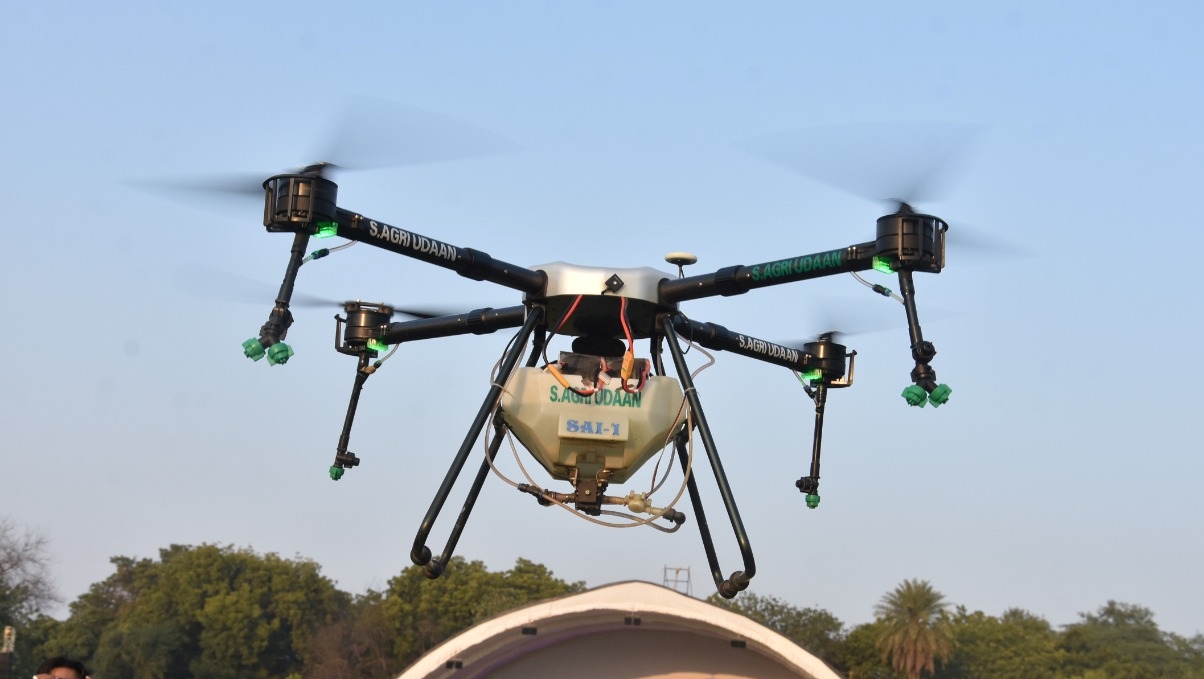
India has imposed an import ban on drones with immediate effect. The ban, which was notified by the Ministry of Commerce and Industry on Wednesday, prohibits the import of drones in all forms – Completely Built-Up (CBU), Completely Knocked Down (CKD), and Semi Knocked Down (SKD).
However, certain exceptions are being granted for defense, security, and research and development (R&D) purposes. These sectors would still be able to import foreign-made drones, but only with “due clearances.” In the meantime, the import of drone components is being allowed without any sort of approval.
This ban on importing foreign drones is the latest attempt by the Indian government to provide a boost to the nascent domestic drone industry.
In the last few months, the country has introduced a series of policy reforms to give more impetus to indigenous drone manufacturers, and has even expressed a vision to become a “global drone hub by 2030.” While it’s not immediately clear how India plans to achieve that status while adopting a policy approach that borders protectionism, momentum has been growing across industries for “atmanirbharta” or self-reliance initiatives.
Amber Dubey, a joint secretary with the Ministry of Civil Aviation, insists that “this is a good time to invest in the Indian drone industry.” Explaining that the import ban will serve a two-fold purpose, Dubey says:
First, it will promote “Made in India” drones. And there’s also a security angle… there are allegations, not much is proven… but there’s always a risk of malware and spyware where a drone user may unknowingly transmit images to a foreign country.
Dubey further acknowledges that while the Indian drone industry may not be on par with other countries at present, a system of checks and balances that is being put into place will bring about the required transformation. Here’s Dubey:
In August 2021, we came up with the liberalized drone policy. Then, we released the drone airspace map which freed up almost 85-90% of India as a green zone where you could just go and fly for business or for personal needs. Then the Unmanned Traffic Management (UTM) policy was released last month, followed by the drone type certification policy. So, there’re a series of steps that we are taking… because first comes the policy, then the demand and supply follow. We’ve set the foundation that was needed. And now you’re seeing some very sharp brains, who could’ve taken up high-paying jobs in the corporate sector, running drone startups straight out of college.
Also read: Here’s a drone that works both in the air and underwater
While the news is being welcomed by commercial drone manufacturers that would otherwise be forced to compete with established global players such as DJI, Skydio, and Parrot, consumer drone users are disappointed with the government’s decision because there are simply no options available for them in the domestic industry.
Arun Thomas, CEO at drone rental company Aktiv Global, also comments:
Though I support make in India, any kind of import ban or protectionism is not going to help the Indian drone industry and drone users. Incentives are welcome, few restrictions are acceptable, with the national interest in mind, but banning imports will be counterproductive. Indian consumer drone users and drone enthusiasts will be the most disappointed.
Meanwhile, some drone professionals are highlighting that the import ban has come as a “do or die” opportunity for the industry.
“Indians sometimes forget how smart they are and get lazy in innovating or building superior products. Necessity is the mother of all inventions! So once you have no other option left, you are forced to build yourself. Now this is our tiny island and we survive with what we make ourselves or perish,” says Dr. Ruchi Saxena, coordinator of the India Flying Labs network.
Read more: Indian state’s drone surveillance, facial recognition program worries privacy advocates
Cover image: India’s Minister of Agriculture
FTC: We use income earning auto affiliate links. More.





Comments